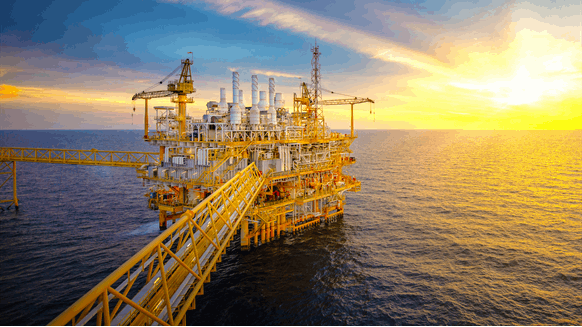Shell PLC has announced the delivery of the first gas from its Timi field platform in Malaysia, designed to produce up to 50,000 barrels of oil equivalent per day.
Production is brought through a new 49.7-mile pipeline to the Shell-operated F23 production facility, the British energy giant said.
Shell, whose Sarawak Shell Berhad operates the Timi field development project through a 75 percent stake in production sharing contract SK318, touted the rig as a testament to its push for a production less emissions.
“Timi features Shell’s first wellhead platform in Malaysia powered by a hybrid solar and wind power system,” he said in a press release this week. “This unmanned rig is also more cost-effective, being about 60 percent lighter than a conventional tender-assisted wellhead rig that relies on oil and gas for power.”
Shell had commissioned its first fully solar-powered wellhead platform at the Gorek field on 24 May 2020, as announced by the company on 31 July 2020. The field is operated by Sarawak Shell with the shared production contract SK408.
Zoe Yujnovich, Shell’s integrated director of gas and upstream, said in a statement about the commissioning of the Timi gas platform: “Timi demonstrates that we are delivering more value with fewer emissions.”
“It shows our ability to innovate and deliver safe, reliable and sustainable projects that support a balanced energy transition for Malaysia,” Yujnovich added.
Shell discovered Timi, a sweet gas field, in 2018 under contract SK318 with PETRONAS Carigali Sendirian Bhd (15%), a subsidiary of Malaysia’s state-owned Petroliam Nasional Bhd (PETRONAS) and Brunei Energy Exploration (10%). Timi is about 126 miles northwest of Miri, Sarawak and 157 miles northwest of Bintulu in the same state, according to Shell.
Rosemary-Marjoram development
In addition to Timi, Shell also has another gas project at its operated Rosmari and Marjoram fields in Sarawak, one of two states on the Malaysian side of Borneo, an island shared with Brunei and Indonesia.
On September 5, 2022, Shell announced the final investment decision for a gas project serving the fields. The project, planned to supply the PETRONAS LNG complex in Bintulu, is designed to produce 800 million cubic feet of gas per day, Shell said, projecting the start of production in 2026.
“The project includes a remotely operated offshore platform and an onshore gas plant, with infrastructure including one of the world’s longest offshore wet gas pipelines stretching over 200 km. [124.3 miles]Shell said.
Shell, the operator with an 80 percent stake (PETRONAS Carigali Sdn Bhd holds 20 percent), described the project as the “biggest onshore project in Sarawak since the construction of the Bintulu Crude Oil Terminal and the Bintulu Integrated Facility in the late 1970s.”
“The Rosmari-Marjoram development will be powered mainly by renewable energy; the offshore platform will use the power of 240 solar panels, while the onshore plant is connected to Sarawak’s grid system which is mainly supplied by hydroelectric plants,” he said in the announcement. “Diesel generators and batteries should be used as backup.”
The Rosmari-Marjoram deepwater sour gas fields were discovered in 2014.
Sarawak Pipeline
Shell is also progressing the development of three more fields in Sarawak. On July 6, McDermott International Ltd. announced that it had won a construction contract for the pipeline that would serve the F22, F27 and Selasih fields.
“Under the scope of the contract, McDermott will perform transportation and installation services for two pipeline segments and one section of flexible pipe,” the Texas-based company said in a news release. “McDermott will also provide pre-commissioning work on all internal piping and perform the structural installation of three jackets and tops.”
To contact the author, please email jov.onsat@rigzone.com


